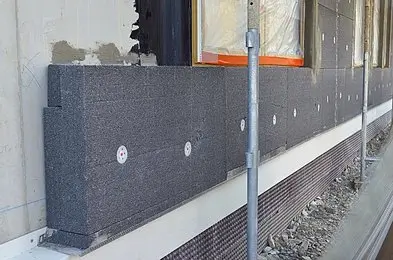
5 Ways to Get External Wall Insulation Grants in the UK
External Wall Insulation Grants is a game-changer for energy efficiency, slashing heat loss by up to 35% and saving households £550+ annually on energy bills. With rising fuel costs and stricter EPC requirements, securing grants has never been more urgent. Here’s your 2025 guide to unlocking financial support for external wall insulation in the UK.
1. Apply Through the Great British Insulation Scheme (GBIS)
The GBIS is a £1 billion government initiative running until March 2026, designed to help low-income and energy-inefficient homes.
Eligibility:
- Income: Households earning ≤£31,000 gross annually.
- EPC Rating: Properties rated D or below (homeowners) or E (renters).
- Council Tax Band: A–D in England; A–E in Scotland/Wales.
How It Works:
GBIS covers 75–100% of insulation costs for single measures like external wall insulation. Apply for grants or contact energy providers like Chahal Energy Ltd..
Pro Tip: Combine GBIS with a free Nest Smart Thermostat (offered to eligible households) to maximize energy savings.
2. Leverage the ECO4 Scheme for Whole-House Upgrades
The Energy Company Obligation (ECO4) targets fuel-poor households with a "whole-house" approach, covering insulation and heating upgrades until March 2026.
Key Requirements:
- Benefits Recipients: Universal Credit, Pension Credit, or Housing Benefit.
- EPC Rating: D–G .
- Heating System: Must upgrade inefficient systems (e.g., electric storage heaters) alongside insulation.
Application Process:
Contact your energy supplier (e.g., Chahal Energy Ltd.) to confirm eligibility. ECO4 often covers 100% of external wall insulation costs for qualifying households 78.
3. Explore Local Authority Grants
Many councils offer targeted grants for energy efficiency, especially for vulnerable residents or homes in high fuel-poverty areas.
Examples:
- Warm Homes Local Grant (2025): Launching in April 2025, this scheme provides up to £15,000 for insulation via local councils.
- Flexible Eligibility: Councils can refer households under GBIS if they’re vulnerable to cold-related health issues.
Steps to Apply:
- Check your council’s website for “energy efficiency grants.”
- Submit proof of income, EPC rating, and health conditions (if applicable).
Success Story: West Lindsey Council upgraded 1,572 homes per 100,000 households under GBIS.
4. Use Health-Based Eligibility
Households with members suffering from cold-aggravated health conditions (e.g., asthma, arthritis) may bypass income thresholds.
Qualifying Conditions:
- Respiratory or cardiovascular diseases.
- Immunosuppression (e.g., cancer treatment).
- Mental health issues worsened by damp/cold.
Required Documentation:
- GP letter linking health to living conditions.
- Prescription or medical records.
Why It Works: Councils prioritize these cases under GBIS and ECO4, often fast-tracking applications.
5. Pre-Register for the Warm Home Plan (2025)
The UK government’s Warm Home Plan, launching in April 2025, merges existing grants into a streamlined £30,000 fund per household.
Key Features:
- £15,000 for Insulation: Covers external wall insulation, draught-proofing, and glazing.
- Priority Groups: Low-income households, off-grid homes, and social housing.
How to Prepare:
- Pre-register via platforms like Warma UK for early access.
- Ensure your EPC rating is updated (required for eligibility).
Securing external wall insulation grants in 2025 is easier than ever, with schemes like GBIS, ECO4, and the Warm Home Plan offering up to £30,000 in support. Whether you’re a low-income household, a pensioner, or dealing with health challenges, there’s a pathway to a warmer, cheaper-to-run home.
Act Now: Delaying could mean missing out—schemes like GBIS close in March 2026.
All Categories
Recent Posts
MON-SAT 8:00-18:00
0800 0599667



